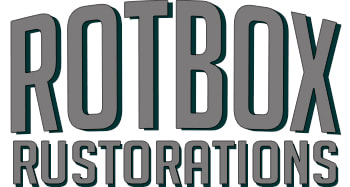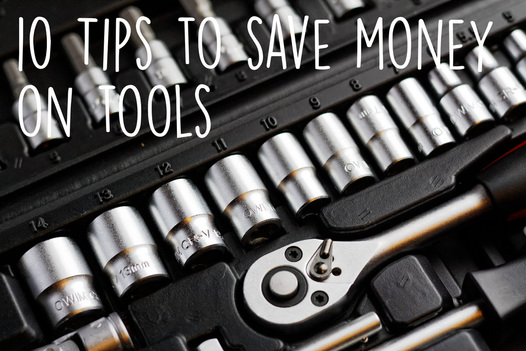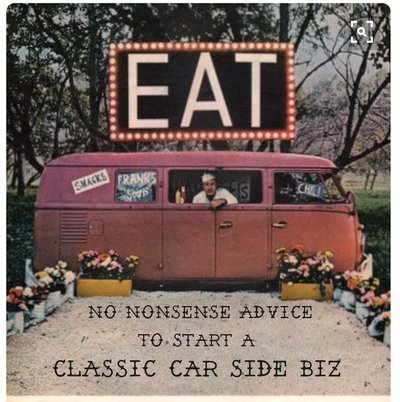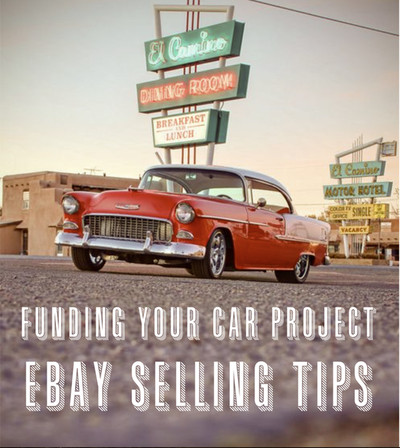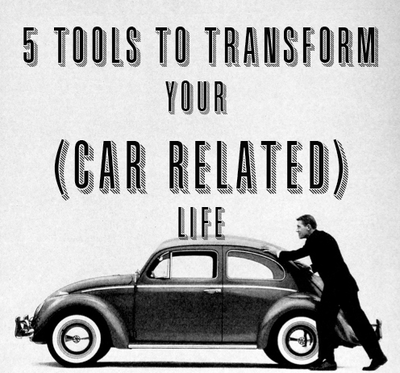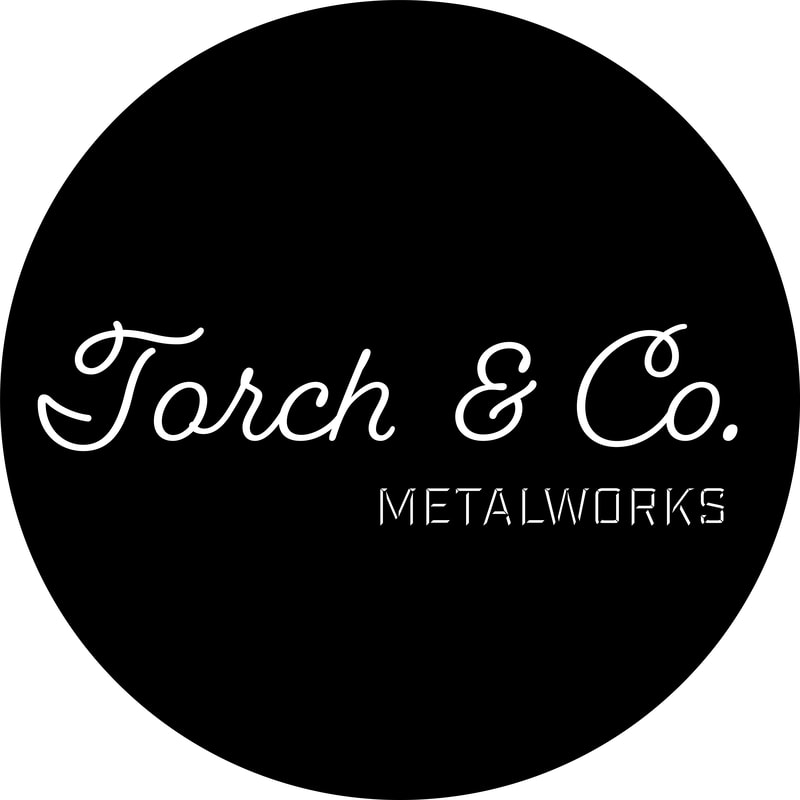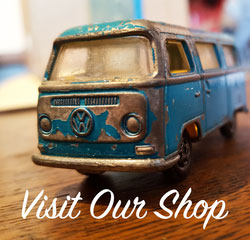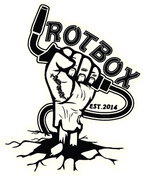|
Mechanics have a love/ hate relationship with their tools. They love trying out shiny new tools- but hate how much money they cost! In fact, I think that probably in more than any other profession mechanics get pretty screwed over in the equipment department. It's standard in the industry to expect all mechanics to bring their own toolboxes to a garage, even when they're not self-employed. This wouldn't be that big of an issue if the tools they're expected to buy weren't so bloody expensive. It's far too easy for newly qualified mechanics on less than great wages to get talked into buying everything on finance which can lead to a vicious cycle of buying- and wracking up mountains of debt in the process. I could rant on this theme for some length- but let's move on! If you're serious about working on your car you'll need the tools to do it right. Let's look at a few ways to get the gear without plunging yourself into crushing debt. 1. BorrowThe tools I mean- not the money. (I repeat: DO NOT BUY TOOLS ON FINANCE). When you first think about adding a new tool to your collection ask around to see if you can borrow it from a mate first. Trying something out for yourself is a good way to figure out if it’s right for you. Studies suggest 60% of people are influenced by online reviews before they make a purchase (myself included!) - but my inner cynic also knows a lot of these reviews are written by the manufacturers, or people they’ve paid/gifted the item to in return for a favourable review, so being able to actually use the item before you buy it will help you decide if a piece of kit is worth the Amazon hype. Once you’ve given a tool a good test for yourself you’ll be in a much better position to make the decision to actually spend your money on it. If it's a very expensive purchase borrowing first will help you figure out if it's really worth the investment. 2. RentSimilar to borrowing but you will actually need to part with some cold, hard cash for that tool- just not as much as buying it outright would cost. A very quick online search reveals at least three tool hire companies in my local area so hopefully it shouldn't be too hard to find a company that offers tool hire in your area too. This can be a good option if you're in need of an expensive, specialist tool for a specific job and you're not likely to use it often enough to justify buying it outright. For example, an engine crane is a big piece of equipment (imagine a decent one, not a fold away one that might kill you when it collapses). Not only will said engine crane set you back quite a few hundred, it will take up all the space in a tiny garage or a fair portion of even a decent sized garage if you’re only going to use it once and then end up selling it for a loss because you’re sick of it being in your way every time you want to work on your car. 3. Buy UsedWhen Matt first started out as a fresh faced mechanic the majority of his tools were second hand and, in fact, a lot of old tools are actually better made than the shiny new Made-in-China tools on offer now (so mechanics tell me, today many brands of tool feel very similar in quality, just with different packaging and prices.) Car boots and auto jumbles were always a good place to find tools, but this is increasingly less so because more people are selling their good second hand stuff online these days. You can still find good deals occasionally at sales but there's also a risk that the tools won't work properly when you get home, particularly with electronic items (which I wouldn't really recommend buying from a car boot anyway unless they're cheap enough to take a risk on). EBay is another good place to buy second hand tools and there's the added security of buyer protection- but for this same reason real bargains are rare and you generally pay what they're worth. 4. Buy Cheaper BrandsLike I said in the above point, most tools today are very similar quality just in different packaging so you don't necessarily need to have the most well-known products to have something decent. You'll find that even some budget tool companies offer a lifetime warranty with their products now. Just remember to keep the receipts! 5. Buy Older ModelsWith stuff like power tools, models change very little from year to year. So it makes sense to buy an older model when they're being sold off at a discount in stores to make way for the newer models. Some shops even sell off the display models of older tools for a significantly reduced price. 6. Swap/ Trade InA lot of tool companies allow trade-ins of tools which they then refurbish and sell on for a profit, so if you tend to work your tools to death and don't think they'll be fit for resale, or you just can't be bothered with the process of selling then this is a good option for you. 7. Avoid "All-In" Sets and OffersManufacturers sell bundles and kits in an attempt to get you to spend more money on low value items that you don't really need. Never buy a bundle set if it includes items you don't think you'll ever really use (unless, on the rare occasion that you can sell those items on for a profit). They will just gather dust and take up precious space in your toolbox. If you make it a rule to only buy what you need you'll save money in the long run. 8. Sell Your Old ToolsYou should be regularly taking stock of your tool collection and weeding out the unused items. If you're not using something- sell it! The money you get can be reinvested into a tool you actually want and need. The longer you hold onto unused tools, particularly electronic ones, the more technology will move along and the less money it will be worth so it's best to sell it the moment you realise it's no longer of use to you. Your items should sell well on eBay or Gumtree. 9. Start Small and CheapWhen you first start working on your car you'll only need the essentials. The bare minimum tool set off the top of my head is:
You should build up a collection in line with your needs, not what you've been talked into. You definitely DO NOT need an extensive collection of fancy tools to do adequate work on your car. It's not a bad idea to start with a cheap set of tools which can be replaced gradually with decent ones- the tools you wear out first will be the ones you use the most and therefore the ones you'll benefit most from upgrading. 10. Upgrade SlowlyThe longboard I learned to skate on was "basic" to put it nicely. It was slow, heavy and hard to turn- but it was exactly what I needed. The first welder Matt bought cost £350 new out of the box (yes that is very cheap for a welder) was very basic and was exactly what he needed to learn with. You should only think about moving on to something more advanced once you've fully mastered your basic piece of equipment. This way you can focus on learning the skills without being overwhelmed by all the bells and whistles when you've barely started out. "A poor workman blames his tools" is a common saying which I do not 100% agree with. It's true that good tools can make a difference on the quality of work you produce and save you a hell of a lot of time too, but only when you've already advanced to a good level so that you're confident in doing the task. Your skill is far more important than the gear you have so you should only look at upgrading when you think you've completely outgrow your current equipment. And trust me, if you do it this way you'll appreciate your decent gear a million times more and get the most out of it. The Take AwayThere's nothing wrong with splashing out on new tools that you've carefully researched and are certain you need. Getting a new tool is exciting and fun. They can keep you feeling motivated and inspired to learn new stuff. But it's really not necessary to spend lots of money. Expensive gear does not an awesome mechanic make It's the hard work and willingness to learn that makes a great mechanic, not owning all the fancy gear. Your tools are just one small part of the equation.
Comments are closed.
|
watch our new youtube channelOur blog delivers brutally honest advice for the “rotbox” in your life with the aim of raising the standard of car projects everywhere.
Practical, direct, actionable ideas and zero bull. Read on. About
|
AboutWe're a dedicated, independent fabrication company based in rural North Yorkshire that specialises in light general fabrication work including CNC plasma cutting and CNC sheet metal bending.
|
